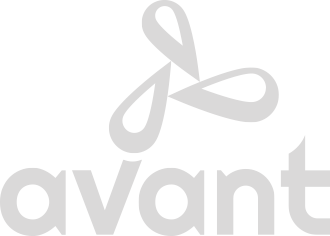Developing Employees As Leaders (DEAL) is a cost-effective, self-service resource that provides a non-threatening approach, enables and focuses development discussions, and promotes a meaningful discussion about every-day behaviors. Read how one leadership development expert, Lyle Maryniak, uses the product, Developing Employees As Leaders and his plans for the talent development app, LUMEN.
In what capacity are you working with DEAL today?
Answer (Lyle): I’m working as a leadership development consultant with companies and individuals in multiple ways, in particular the identification of leaders and then the coaching of new and incumbent leaders. DEAL allows me to take a look at someone’s capacity and the current state of their leadership soft skill set based on specific behaviors.
What are some of the outcomes you’ve seen working with DEAL?
Answer: The value of DEAL is that both the individual and current supervisor are evaluating the around a set of soft skill sets. You get to see not only someone’s self-awareness about their strengths and weaknesses, you can see where their growth capacity lies. This leads to good questions for conversation: What are strengths to leverage based on his or her role? Where do we spend the time and effort? In my experience we want to focus mostly on strengths; unless something is a showstopper, working on weaknesses has the lowest return on investment. I like to identify strengths and build upon them and that’s one of the things we can do with DEAL.
DEAL sets out a coaching agenda. An understanding of what the role requires along with the feedback that DEAL gives us allows the coaching agenda to become very focused. I’ve used DEAL with an entire team of leaders in one organization. The feedback allowed us to build a composite of the organization’s strengths and weaknesses; it allowed us to come up with specific focus for leadership coaching. Where do we deploy people building on their strengths, and as we consider bringing people into the leadership structure in the future, where do we have gaps? DEAL helps not to overload the team with only the same type of people, it builds diversity of thought.
More broadly, why would a leader choose to use AI as part of his or her leader development strategy over more established, traditional approaches?
Answer: I’ve heard people say, “we don’t have a recruiting problem, we have a leadership development problem. We’re not developing the number and type of leaders we need to solve the business problems.” Any leverage we can get to fill that leadership pipeline with the right people will be a long-term sustainable advantage.
I do believe that DEAL gives you that advantage over some other approaches, certainly over the annual performance review process. One of my favorite topics to teach is the annual review because it’s so counterproductive and pointless, and nearly everyone in the room can relate to that, regardless of what point they are at in their career. The ability to get and give real feedback is so huge. The conversations that go on between a coach and a leader in development become far more real and meaningful with this kind of information. Far more productive.
Will DEAL resonate differently with different generations?
Answer: That’s a really good question. Right now, I don’t think it will. Anybody going through this has real career desires. If you’re a baby boomer, there’s a real reason why you’re going through the process and you understand that. Millennials or other younger generations will feel very comfortable and they’ll roll with it. This is not a generationally sensitive instrument.
What would you tell someone who was interested in deploying DEAL at their organization?
Answer: I’d first ask what exactly they are looking for. I’d ask how open the people needing development are to straightforward feedback. I’d ask how well they understand the needs of the role for the types of information they’re getting back. All those things being positive, absolutely, DEAL is for you.
I also like to show them the output and what is coming. I want them to know what they will get and how it will be useful for them. While there’s a modicum of education that goes on with it, it’s very easy to use. There are some leader development instruments that are like breaking open a fortune cookie: Easy to use and quick, but meaningless. DEAL is easy to use, quick and meaningful.
What is your experience with LUMEN, which deep dives even further into leader development?
Answer: I’ve got 4 or 5 people almost ready to go the next step with LUMEN, which is even more robust in providing an ongoing 360 over time from more people in more situations. It has built in permission for the feedback provider, meaning when someone is ready to hear feedback, both the giver and the receiver are open to it on an ongoing basis. I’m really stoked to use LUMEN when I’ve got people ready.

